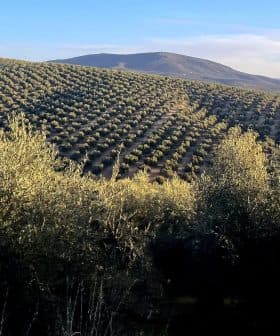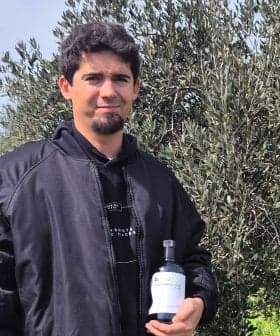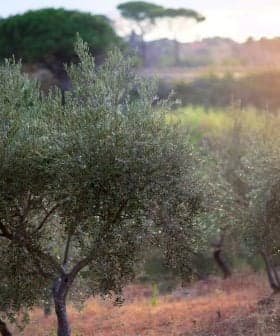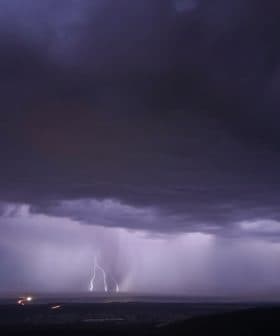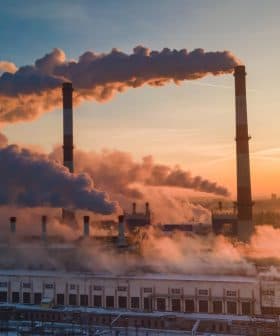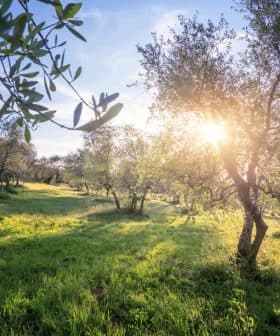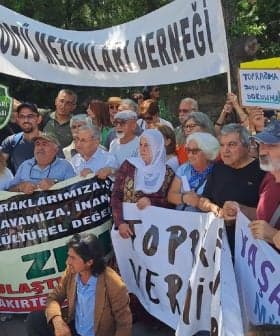Producers Express Alarm in Latest Olive Oil Times Survey
Producers say they face ever-growing hardships from the effects of a global pandemic, climate change, higher production costs, market instability and a persistent lack of consumer understanding about their products.
Olive oil producers worldwide have faced numerous challenges in the last year, including the impacts of the global pandemic, climate change, and market instability, according to a survey conducted by Olive Oil Times. The survey results indicate that many producers are struggling with lower yields, labor shortages, and changing consumer understanding of olive oil quality and value, leading to concerns about the future of the sector.
The last twelve months have posed challenges for everyone around the world. For olive oil producers, whose work has never been easy, it has been a particularly trying period according to the results of an Olive Oil Times survey.
From hard to find labor hands, all the way to the tremendous increase of the expenses, everything is going through the roof.
Farmers and producers say they face ever-growing threats to their livelihoods, from the effects of a global pandemic and climate change to higher production costs, market instability and a persistent lack of consumer understanding about their products.
The survey, which was sent to 4,253 olive oil producers in 36 countries, asked a range of questions about the 2021/22 harvest season.
The results suggest there are many in the sector who feel nearly overwhelmed by an endless onslaught of hindrances affecting every stage of the process from olive cultivation to marketing and fulfilment.
The historically onerous task of producing extra virgin olive oil profitably has become even more confounding lately, the survey responses suggest.
The situation was not dire everywhere. There were producers who reported only a small impact on their businesses from pandemic-related interruptions and there are even those who see a little global warming as not particularly problematic for their microclimates.
The overall assessment of the harvest season, however, painted a grimmer picture than earlier surveys.
Farmers and bottlers were mostly disappointed with the actual or projected quantity of oil produced, or yield, in the 2021/22 harvest, which began last fall for Northern Hemisphere growers and will continue until late spring when the last olives in the Southern Hemisphere are processed.
The assessment by farmers of this season’s yield is significantly lower than last year’s score of 68, while the quality score, which reflects producers’ appraisals of their oil’s intrinsic value, edged higher from 82 in the previous campaign.
Climate Change
Farmers blamed excessive heat, drought and otherwise poor weather for the lower yield, compounded by labor shortages and staff outages that stymied harvest operations. Wildfires claimed groves from California to Greece.
Which of the following have affected your harvest this year?
“We are sure that this is due to climate change which, in addition to the weather, also changes the pests and diseases that our olive groves were susceptible to,” said Luís Brito at Azeites do Cobral, who has been producing certified organic olive oil for about 15 years.
“Since then, we have noticed that, in order to produce an excellent organic olive oil, the harvest has to be [moved back] by one month. Olive groves either adapt to the new climatic requirements or will certainly have to go up in latitude,” he said.
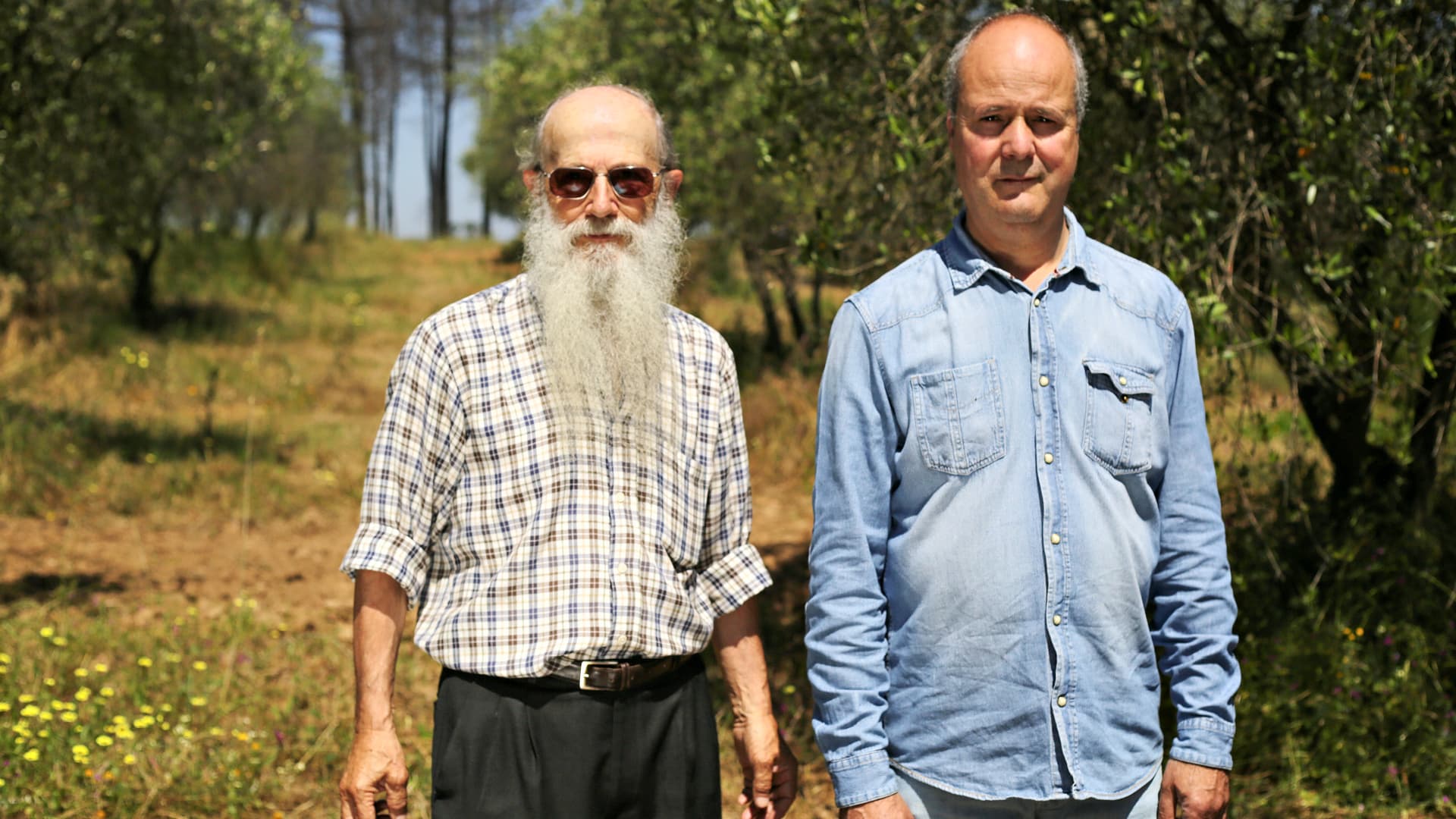
Luís Brito (right), Azeites do Cobral
Other producers echoed that acknowledgement of a changing landscape for olive growing and oil production. While olive trees have always been cyclical — a bumper harvest follows a poor one, and so on — seasoned farmers are seeing and saying things that express the unprecedented conditions they’re facing.
“Mostly because of drought, in Turkey, we had an approximately 70-percent decrease in the amount of olives we’ve harvested this year,” reported Uğur Özen. “Although it is what we call ‘high season,’ [mills] can run only a few mid-week days of January in Milas, the Olive Capital of Turkey. High inflation and insanely rising harvesting and production costs like gas, electricity and labor are the other and darker sides of the moon.”
“There is a great need for an action plan for the shortage of goods coming in the near future,” Rhizoma Olive Farms’ Tasos Anestis told Olive Oil Times. “Ecosystems which were stable in terms of population density and diversity have changed dramatically.”

Tasos Anestis, Rhizoma Olive Farms
“Our climate changes at a dramatic rate and we need to mitigate this,” Anestis continued. “A dynamic olive farm can sequester tons of CO2 and reduce the immediate effects of this global problem. Olive oil producers are honest and down to earth people who are striving on a daily basis to leave their mark on this everchanging world.”
There was a sense shared by respondents in nearly every region that the changing climate conditions put olive oil producers at a uniquely precarious crossroad.
“We, as olive oil producers and farmers need an equivalent to Tourism Declares Climate Emergency,” said Debra Carol Haddock of Casale Prato delle Coccinelle, referring to an emergency initiative of tourism industry stakeholders advocating for climate action.
John Gambini, the proprietor of Texas Hill Country Olive Company, put it clearly: “We believe climate change to be the greatest long-term threat to the olive industry.”
Covid Crisis
The immediate and rippling effects of the Covid crisis has had a stunning effect on producers. From a lack of harvest workers to shuttered hospitality customers and empty farmhouse lodgings, there were few who saw the situation improving anytime soon.
“Covid-19 has been the major factor that impacted our sector. From hard-to-find labor hands, all the way to the tremendous increase of the expenses (shipping charges, export fees, fertilizer prices), everything is going through the roof,” said Demosthenis Chronis, owner of Olea Estates in Sparta, Greece.

Olea Estates
Apart from the devastating humanitarian costs of the pandemic, producers said the drying up of orders from restaurants, hotels and other so-called Horeca customers hit them particularly hard.
Those establishments, who typically trumpet their use of fresh, local products can serve as a lifeline to smaller producers who are less likely to be able to reach buyers in broader markets. It’s no surprise that the interruptions in Horeca impacted so many of the producers who responded to our questions.
Labor Shortages
Traditional olive oil harvesting, which still applies to the vast majority of the world’s farms, is labor-intensive by definition. Farmhands, who often migrate with the ripening olive, were in an even shorter supply for the 2021/22 campaign.

Quinta dos Olmais Lda
For others, the crux of their problems came down to obtaining needed supplies and the movement of their finished products. “Logistics is the most severe issue,” said George Colletti of Fratelli Colletti. “Six weeks of waiting and we are still waiting for our container to become available.”
Tourism
The optimism of last year, when it seemed like the pandemic would subside and tourists were searching for more meaningful destinations such as olive farms, has given way to prolonged vacancies and mostly empty rooms. Still, there was an uptick in domestic travellers noted by some hosts and, with more people staying close to home, a renewed focus on healthy cooking ingredients.
“Covid brought an increased interest in tourism and visits to our farm,” said Curtis Poling at Woodpecker Trail Olive Farm in the southern U.S. state of Georgia.

Woodpecker Trail Olive Farm
Apart from the global leviathans of climate change and Covid, there were plenty of regional aggravations that held producers back this year.
Systemic Challenges
Among the survey responses were calls for government action and collaboration among smaller producers who find themselves increasingly vulnerable in a fast-changing market.
“In Italy, a great part of olive oil production is in the hands of many little farms who make high-quality products,” said Andrea Maffei, who runs Agriturismo Loggia del Centone in Matraia. Without a long-term aggregation policy, there will be no space for innovation and oil production will shrink rapidly in many regions.
“We are mainly affected by the economical crisis and the unpredictable government actions in Turkey,” said Mehmet Taki, the owner of Bata Tarim ve Gida Urunleri A.S., a farm overlooking the entrance of the Dardanelle Straits.
“The country is almost in total disarray making it impossible to plan anything. As a result of the economical crisis internal consumption is dropping substantially,” he said. “Last year’s export ban has given foreign buyers cold feet. Prices on goods and services are changing every day. It is somewhat chaotic.”
Can Aytekin, the owner of Canemre Olive and Olive Oil Company, also blamed tariffs for adding fuel to the fire. “High customs taxes are a major obstacle for Turkish olive producers who want to export their high-quality olive oil to European Union countries,” he said.

Can Aytekin, Canemre Olive and Olive Oil Company
Raouf Ellouze, owner of Huilerie Raouf Ellouze in Tunisia also bemoaned E.U. levies: “Export regulations should change between [Europe] and our countries,” he wrote. “They should open their market for our oil.”
Consumer Confusion
Even if olive farming and extra virgin olive oil production were easy — and it isn’t — producers tell us that among their top concerns is the continued lack of public knowledge concerning olive oil quality and value, which they see as a key to the sector’s future.
Feeding in the vacuum of consumer understanding are low-quality bottlers and major retailers who sell substandard products at prices below the cost of ethical production.
The dignification of the sector is principal,” said Emma Rovira from her farm, Molí dels Torms in Catalonia, Spain. “The market must know the importance of farmers and cultivation, and the farmers should be proud of the work we do. Dignifying our work will empower the value of the products we make.”

Emma Rovira (center), Molí dels Torms
“[We need] greater recognition of quality products with low acidity and high polyphenols — organic products and quality marks such as PDO and PGI,” said Cristoforo Bacchi, the owner of Bacchi Azienda Olearia Siciliana.
“Finding available pickers and organic mills willing to open early enough to be able to make the best quality early-harvest extra virgin olive oil are big challenges, but they are eclipsed by rampant olive oil fraud which severely and negatively impacts the price at which honest olive oil can be sold,” said Françoise de Valera Rose at Oli 4. “Good extra virgin olive oil will become extinct due to financial pressure on honest farmers.
Inflation is having yet another ominous impact on consumer choices, pitting quality against pricing, notes Michelakis Nikos at Kolympari SA Michelakis. “To the consumer, every day you reduce the purchasing power. As a result, you turn to more industrialized and low-cost products and leave the natural products that are very important for our health.”
Tunisian producer Ahmed Hamza agreed: “We need to innovate and educate to maintain sustainable high-quality farming methods and advocate such behaviours with farmers, exporters and consumers.”
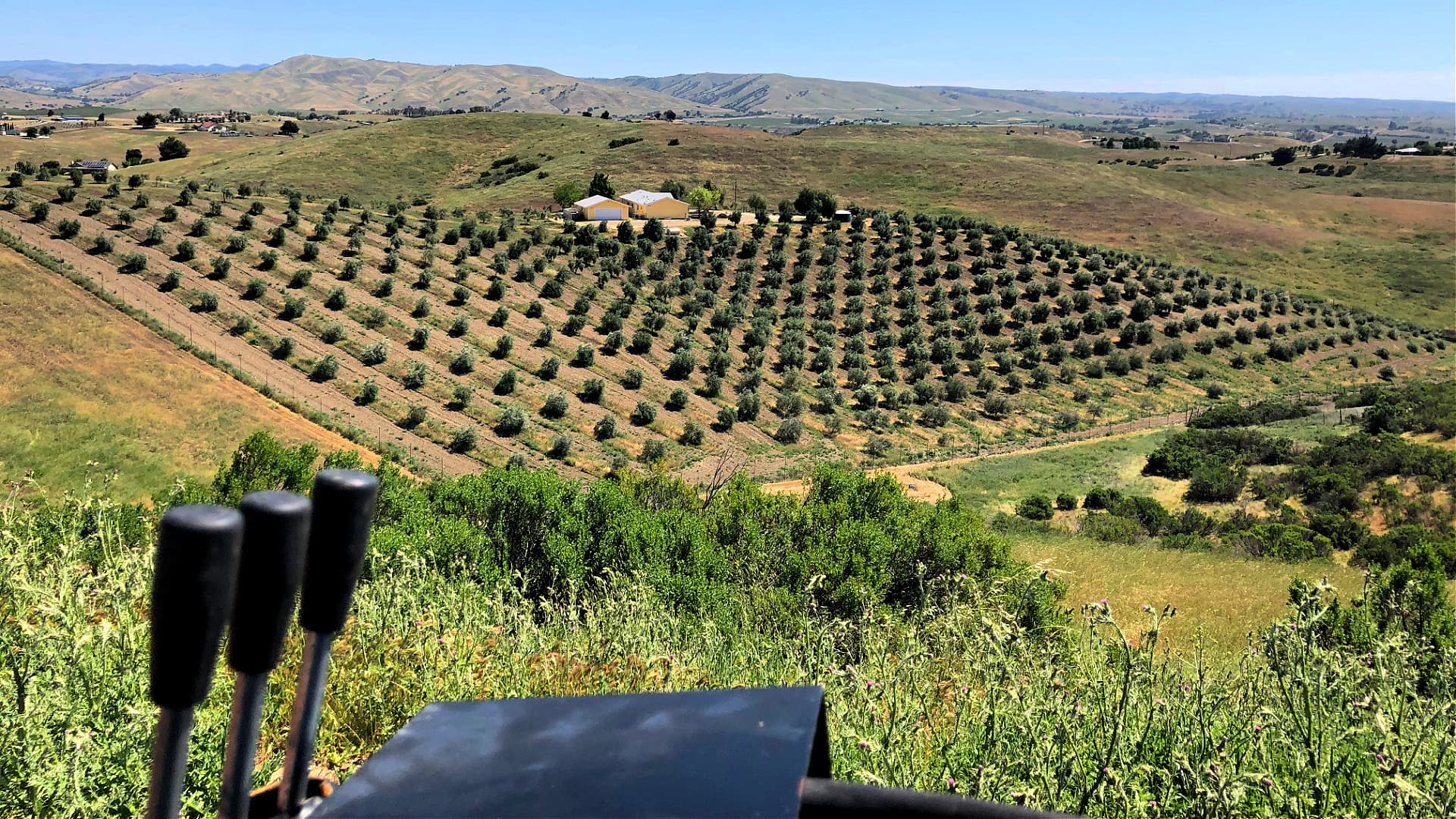
San Miguel Olive Farm, California
The situation has become nearly untenable for some smaller farmers and distributors who have been hit by the cascade of it all.
One, Mary Teeter, who produces Il Bel Cuore in Italy and distributes the brand in the U.S., had this to share:
“We are facing extremes in all weather conditions these days. If it’s not a freeze when the olives are budding, then the extreme wind, heat, cold or rain become the next obstacles we face.
“Additionally, the ability to obtain supplies such as cardboard is another obstacle. There was no paper in Italy to make the cardboard boxes we use to hold the cans.
“Now, the problem is shipping delays and finding available space on a vessel coming to the U.S. We are losing several months on a consumable product due to the shortages and delays.
“This could be the end of our little operation. We sell directly to the consumer and we have a lot of variables impacting our ability to sustain our business.
“We will persevere through these times, just as these trees persevere and grow through the most difficult conditions,” said Teeter.
But John Cancilla at Marqués de Valdueza held out with some optimism.
“Political risk, climate change, economic turmoil and other factors are impacting the olive oil industry, but these same factors together with a growing awareness of healthy eating give rise to a number of opportunities,” he said.
“A rapid and measured response to these external conditions has been fundamental to our continued growth in these turbulent times. While cautious, we are excited about what the immediate future has in store for olive oil producers around the world.”
Share this article


